| |
Radio Controlled Scratch
Built Model Warships
On this page are some of my huge collection of
radio controlled model warships.
Every one has been scratch built.
Some are powered by live steam and some by electric motor.
Most have never been used and are like
new.
Being scratch built they are in the main
much lighter than commercial made fibreglass hulls, all being made from marine
ply making them perform better.
They are fully working models designed
to sail and are fitted with servos. Just add batteries or gas and a receiver and
off you go.
Obviously shipping things like this can
be problematic but I am more than happy to arrange collection, and within the UK they can be
delivered by hand at cost.
Please
contact me
before completing the shopping cart.
Here are just a
few of my extensive collection. Yet to be listed; a huge Steam Powered HMS
Warrior, Electric SS Great Britain, Cutty Sark, and many
more coming soon.
|
|
HMS Prince Of Wales (Pg1 Model Ship 3)
Here we have stunning scratch
built model of HMS Prince of Wales fitted with twin M60
electric motors and servos , just add a battery receiver and
speed controller and she is ready to sail. Being scratch
built with marine ply her hull is much lighter than a
fibreglass hull and she has a great turn of speed.
She is 1.86 M or 73" long.

HMS Prince of Wales was a
King George V-class battleship of the Royal Navy that was
built at the Cammell Laird shipyard in Birkenhead. Despite
being sunk less than a year after she was commissioned,
Prince of Wales had an extensive battle history, first
seeing action in August 1940 while still being outfitted in
her dry-dock, when she was attacked and damaged by German
aircraft. In her brief career, she was involved in several
key actions of the Second World War, including the May 1941
Battle of the Denmark Strait, where she scored three hits on
the German battleship Bismarck, forcing Bismarck to abandon
her raiding mission and head to port for repairs. Prince of
Wales later escorted one of the Malta convoys in the
Mediterranean, during which she was attacked by Italian
aircraft. In her final action, she attempted to intercept
Japanese troop convoys off the coast of Malaya as part of
Force Z when she was sunk by Japanese aircraft on 10
December 1941, two days after the attack on Pearl Harbor.
She was sunk alongside her consort, the battlecruiser HMS
Repulse, in an attack by 85 Mitsubishi G3M and G4M bombers
of the Japanese navy air service. Prince of Wales and
Repulse became the first capital ships to be sunk solely by
air power on the open sea, a harbinger of the diminishing
role this class of ships was subsequently to play in naval
warfare. The wreck of Prince of Wales lies upside down in
223 feet (68 m) of water, near Kuantan, in the South China
Sea


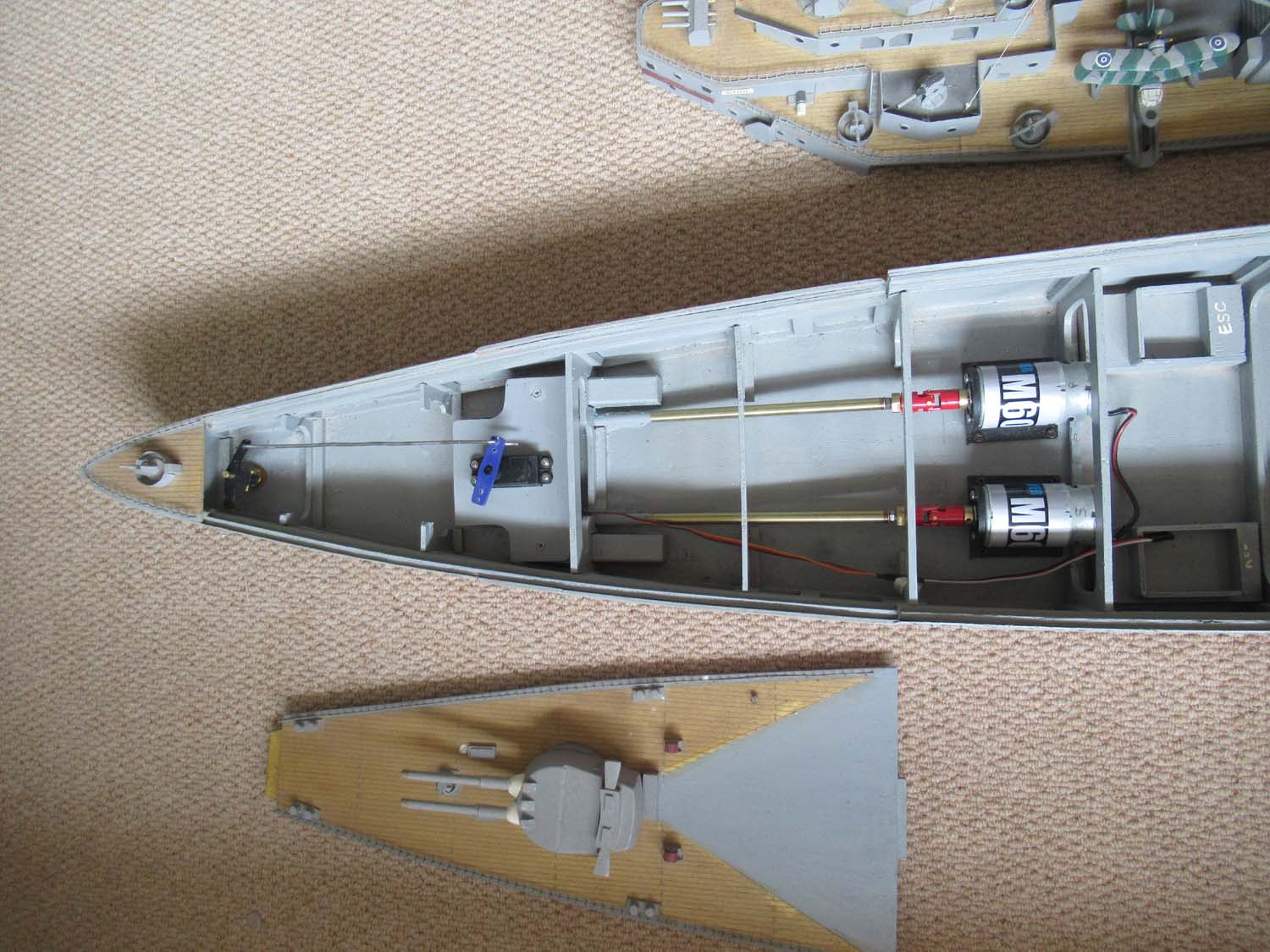
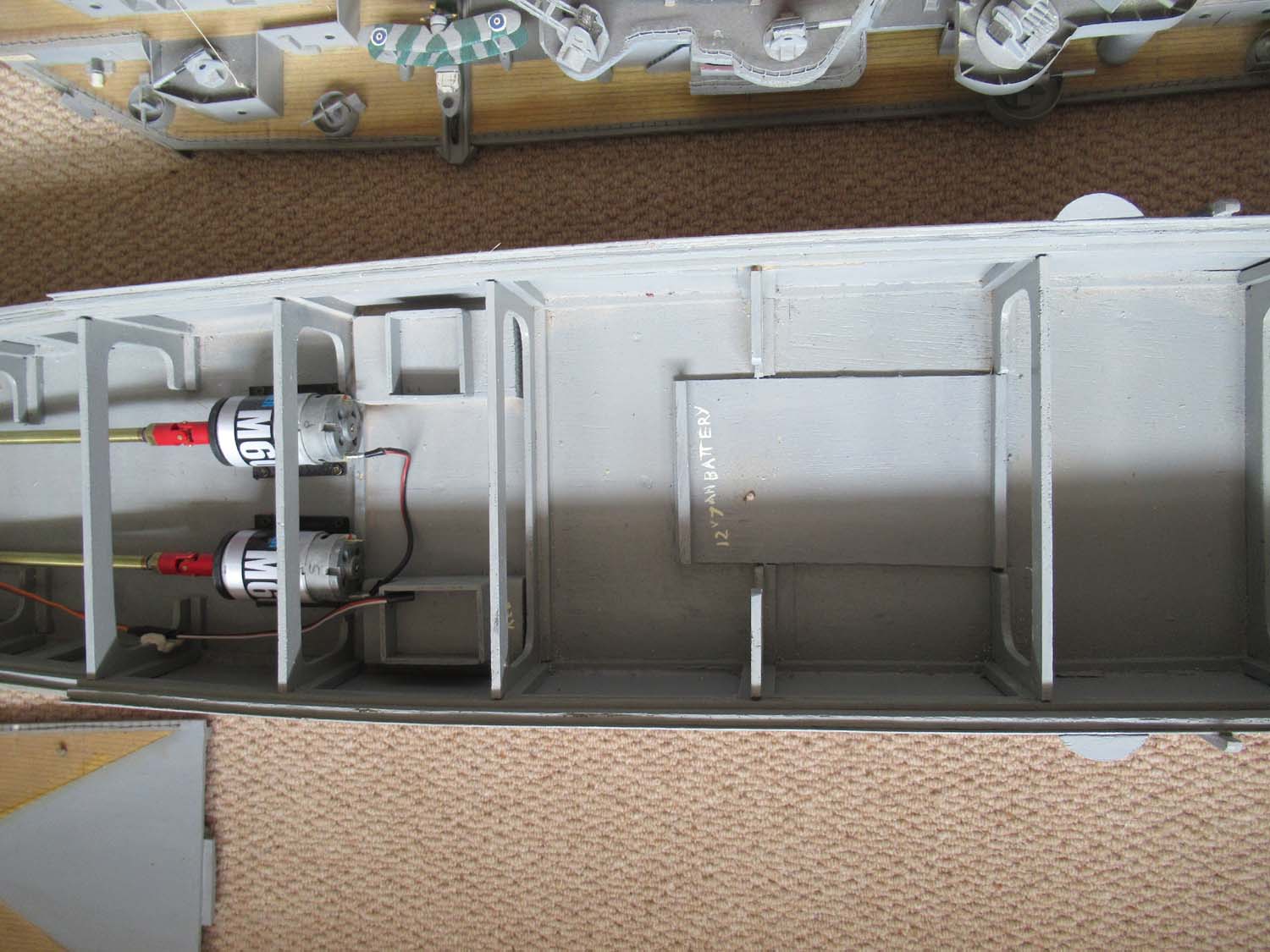
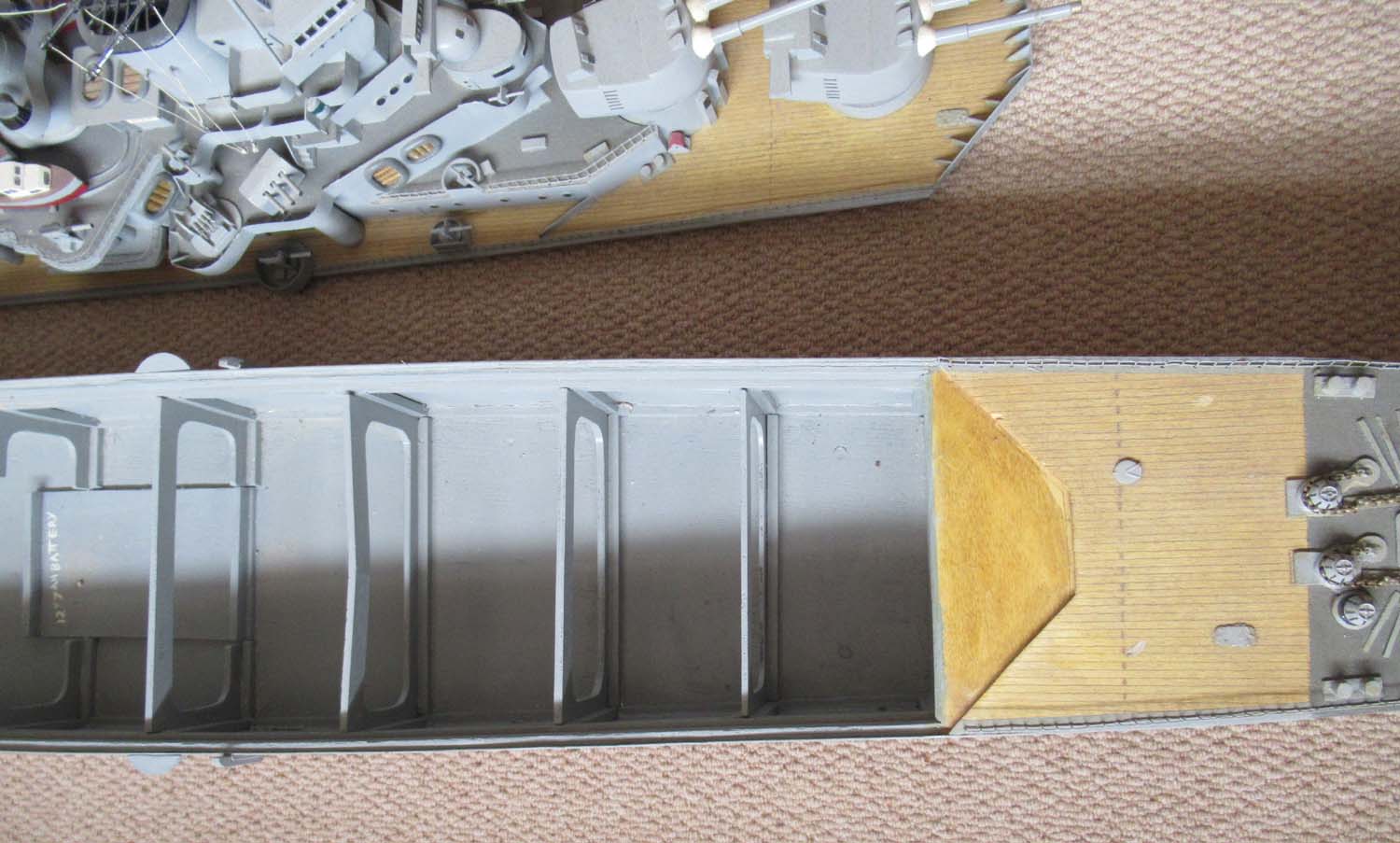

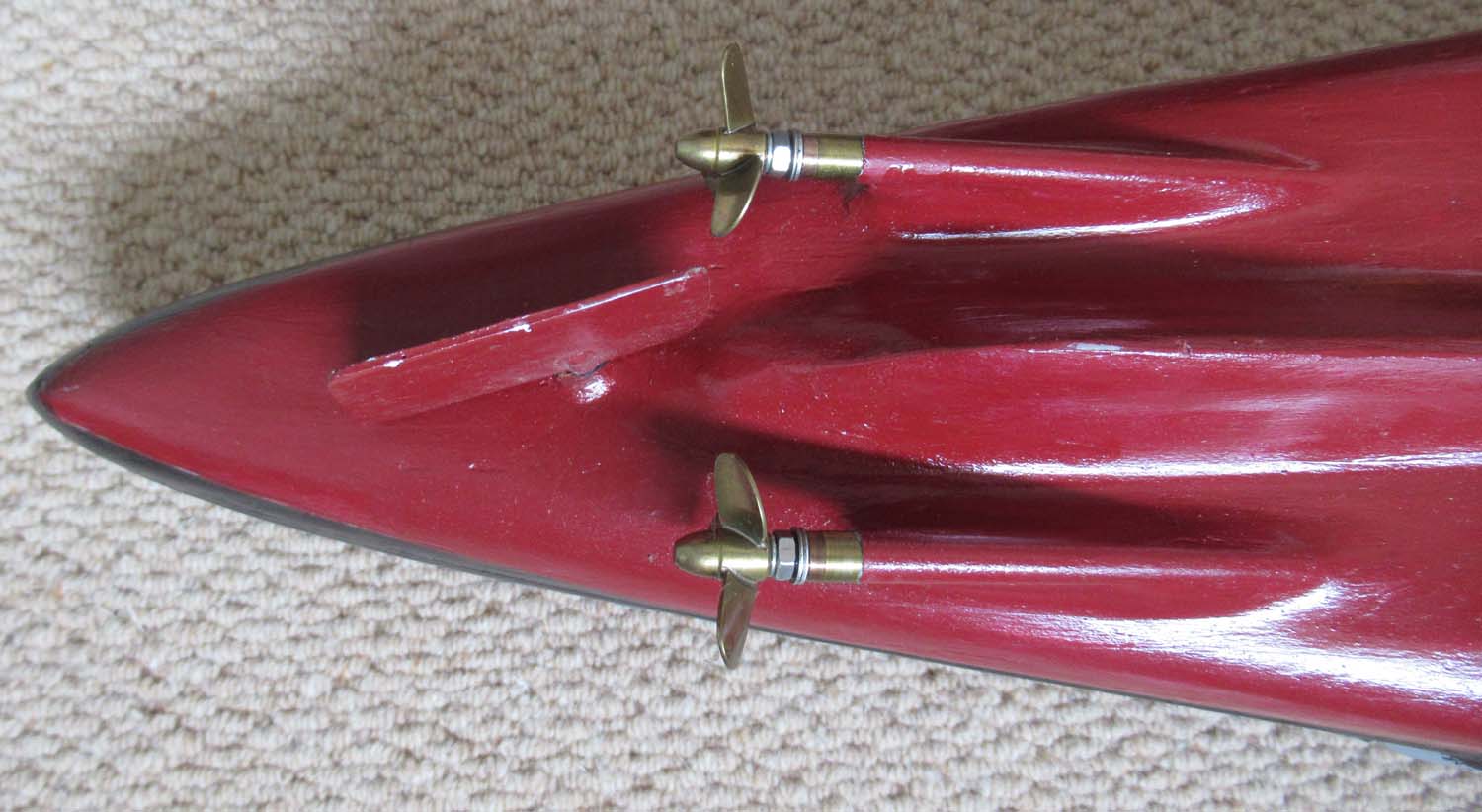
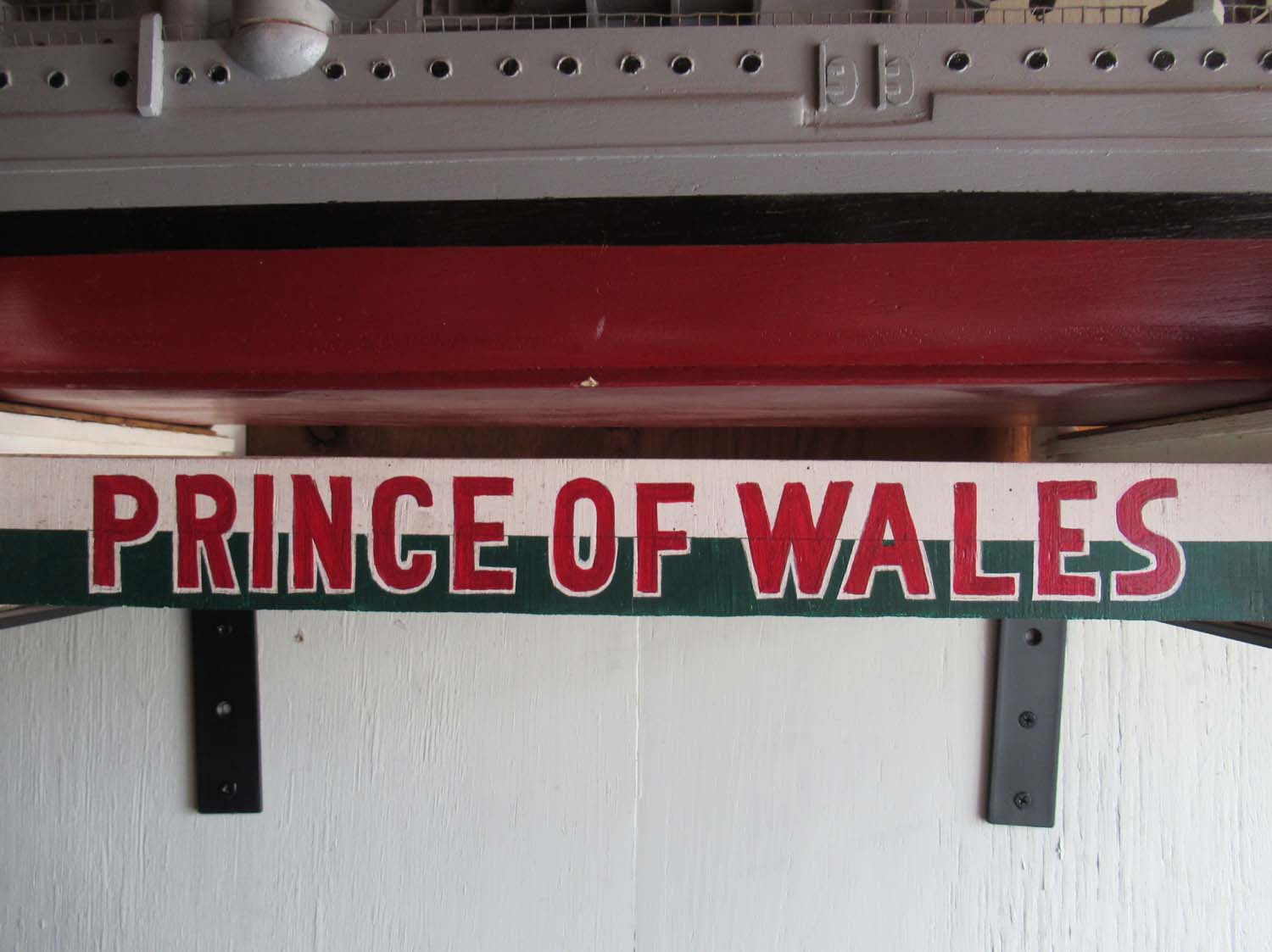
Shipping cost is not included
Contact me for shipping options
£699


|
|
|
HMS Hood (Pg1 Model Ship 1)
Here is a superb fully functioning scratch built model of
HMS Hood in marine ply. She is 1.75m or 69" long powered by
two 12 volt M60 motors will out perform any stock fibreglass
hull on the lake both in speed for less power and agility.
Just needs battery, receiver and speed controller and
she's ready to sail.
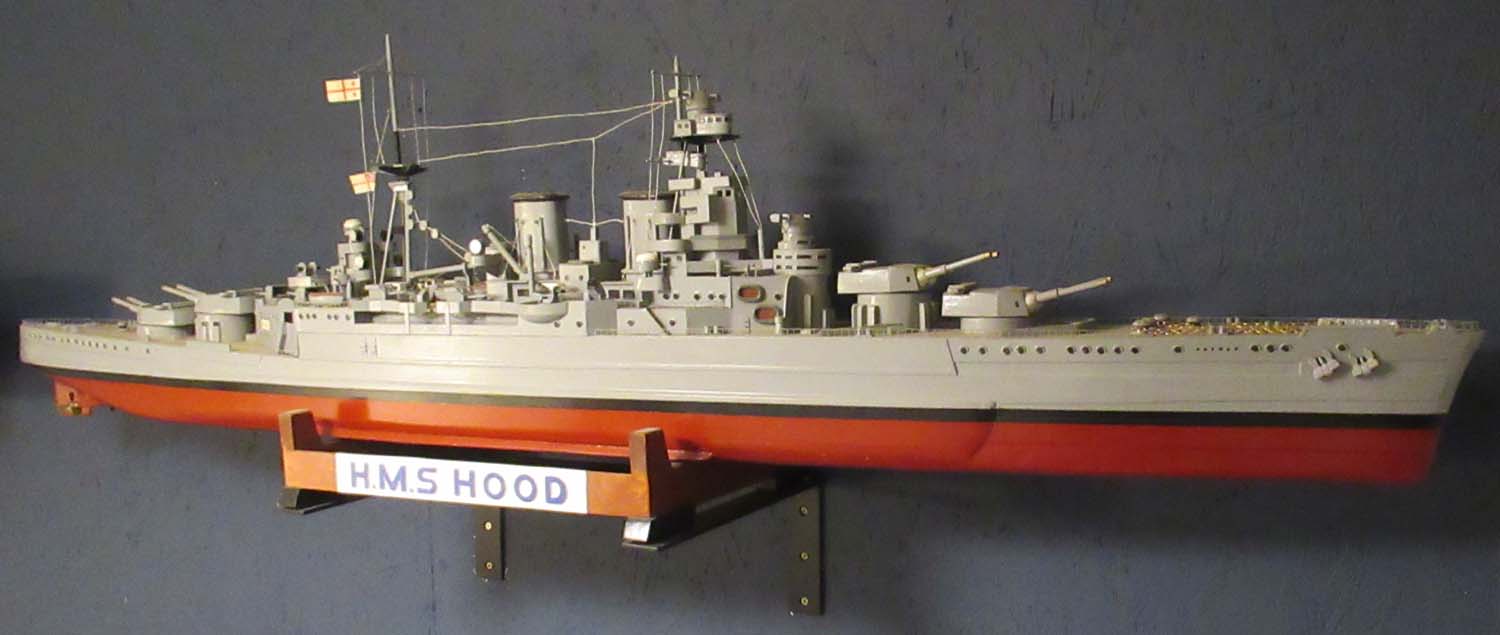
HMS Hood was
a battle
cruiser of
the Royal
Navy (RN). Hood was
the first of the planned four Admiral-class battle
cruisers to be built during the First
World War.
She was already under construction when the Battle
of Jutland occurred
in mid-1916, and that battle revealed serious flaws in her
design; with drastic revisions, she was completed four years
later. Despite the appearance of newer and more modern
ships, Hood remained
the largest warship in the world for 20 years after her
commissioning, and her prestige was reflected in her
nickname, "The Mighty Hood".
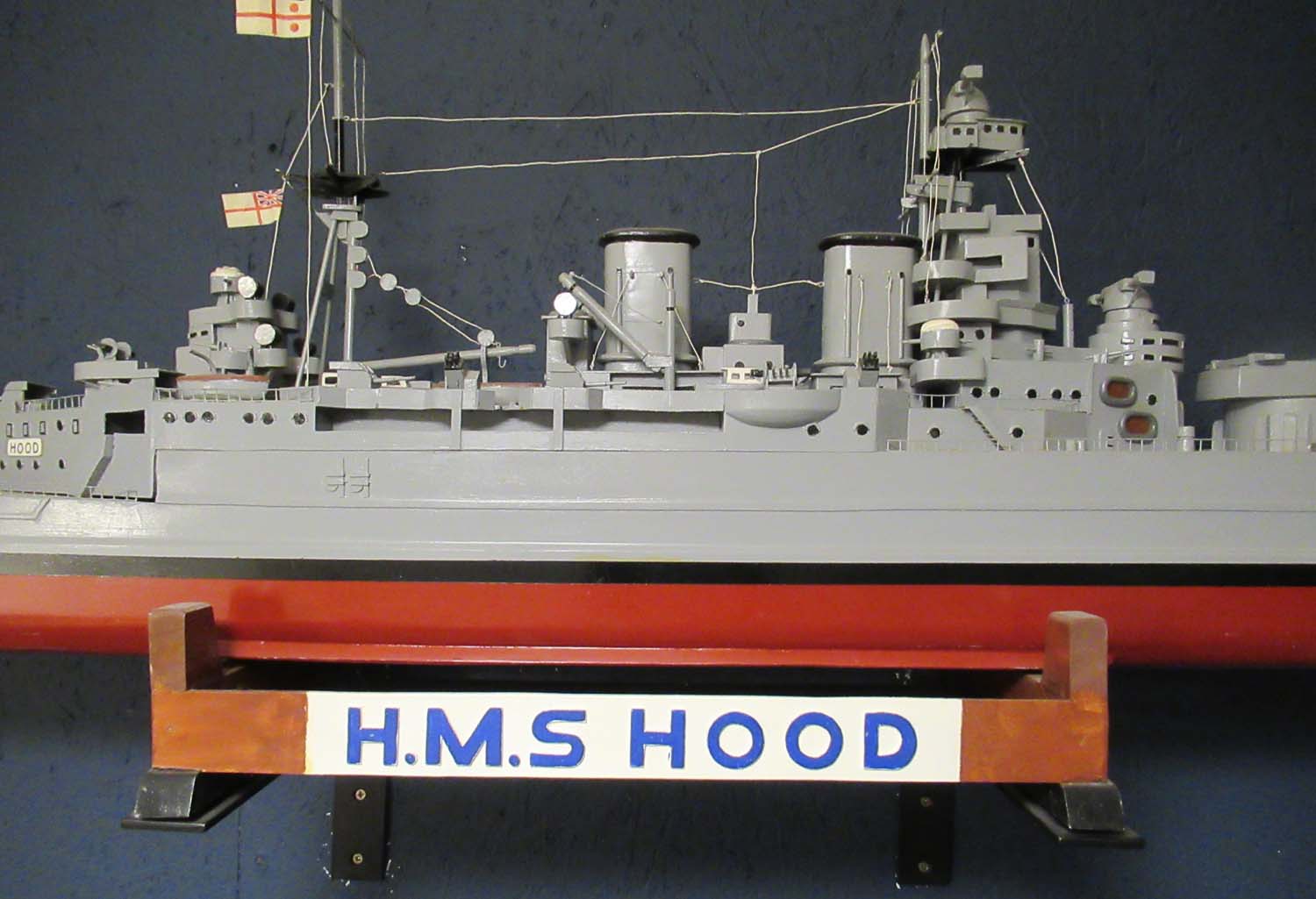
When war with Germany was
declared, Hood was
operating in the area around Iceland,
and she spent the next several months hunting for German commerce
raiders and blockade
runners between
Iceland and the Norwegian
Sea.
After a brief overhaul of her propulsion system, she sailed
as the flagship of Force
H,
and participated in the destruction
of the French fleet at Mers-el-Kebir.
Transferred to the Home
Fleet shortly
afterwards, Hood was
dispatched to Scapa
Flow,
and operated in the area as a convoy escort and later as a
defence against a potential
German invasion fleet.
In May 1941, Hood and
the battleship Prince
of Wales were
ordered to intercept the German
battleship Bismarck and
the heavy
cruiser Prinz
Eugen,
which were en route to the Atlantic, where they were to
attack convoys. On 24 May 1941, early in the Battle
of the Denmark Strait, Hood was
struck by several German shells, exploded, and sank with the
loss of all but 3 of her crew of 1,418.
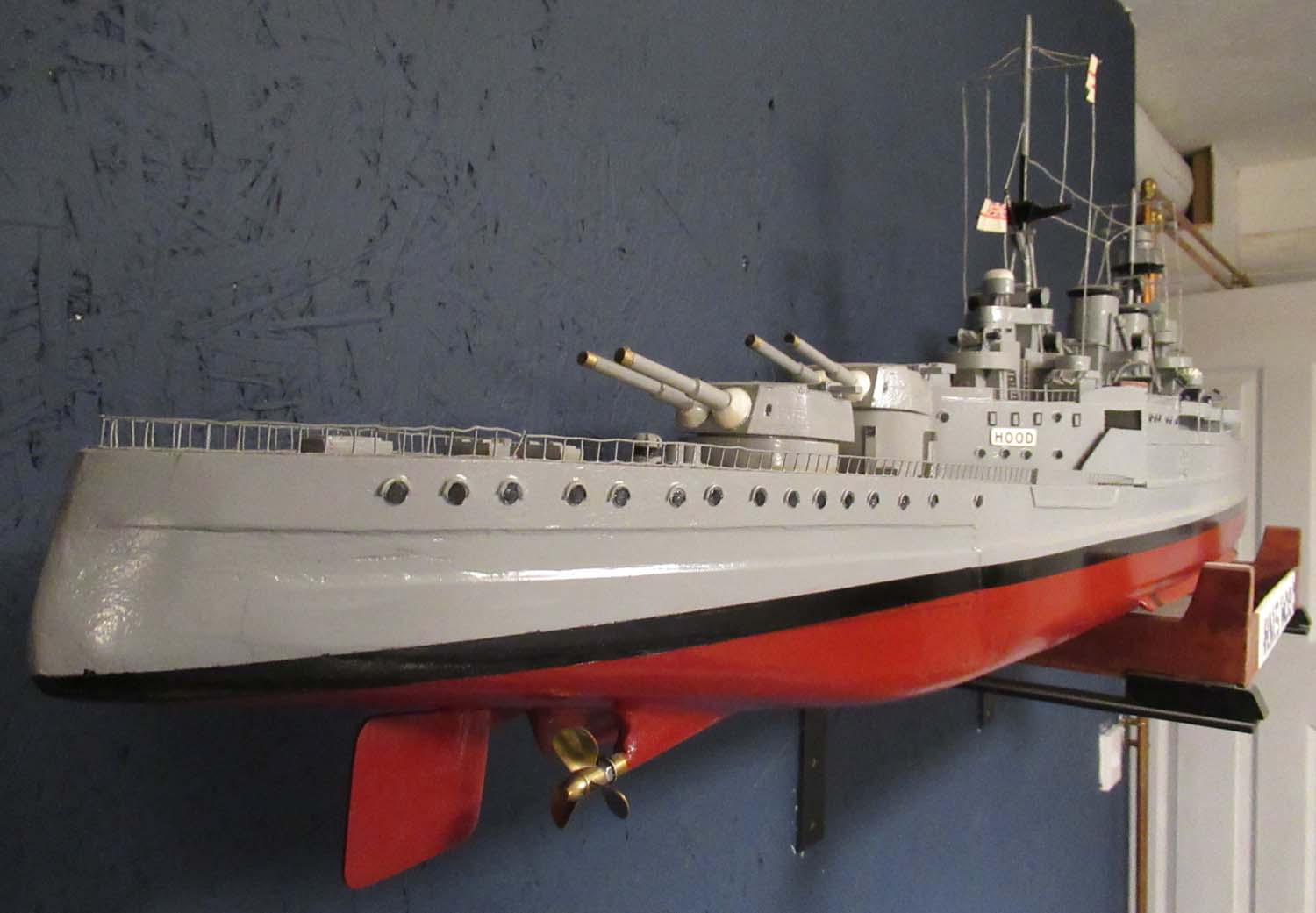
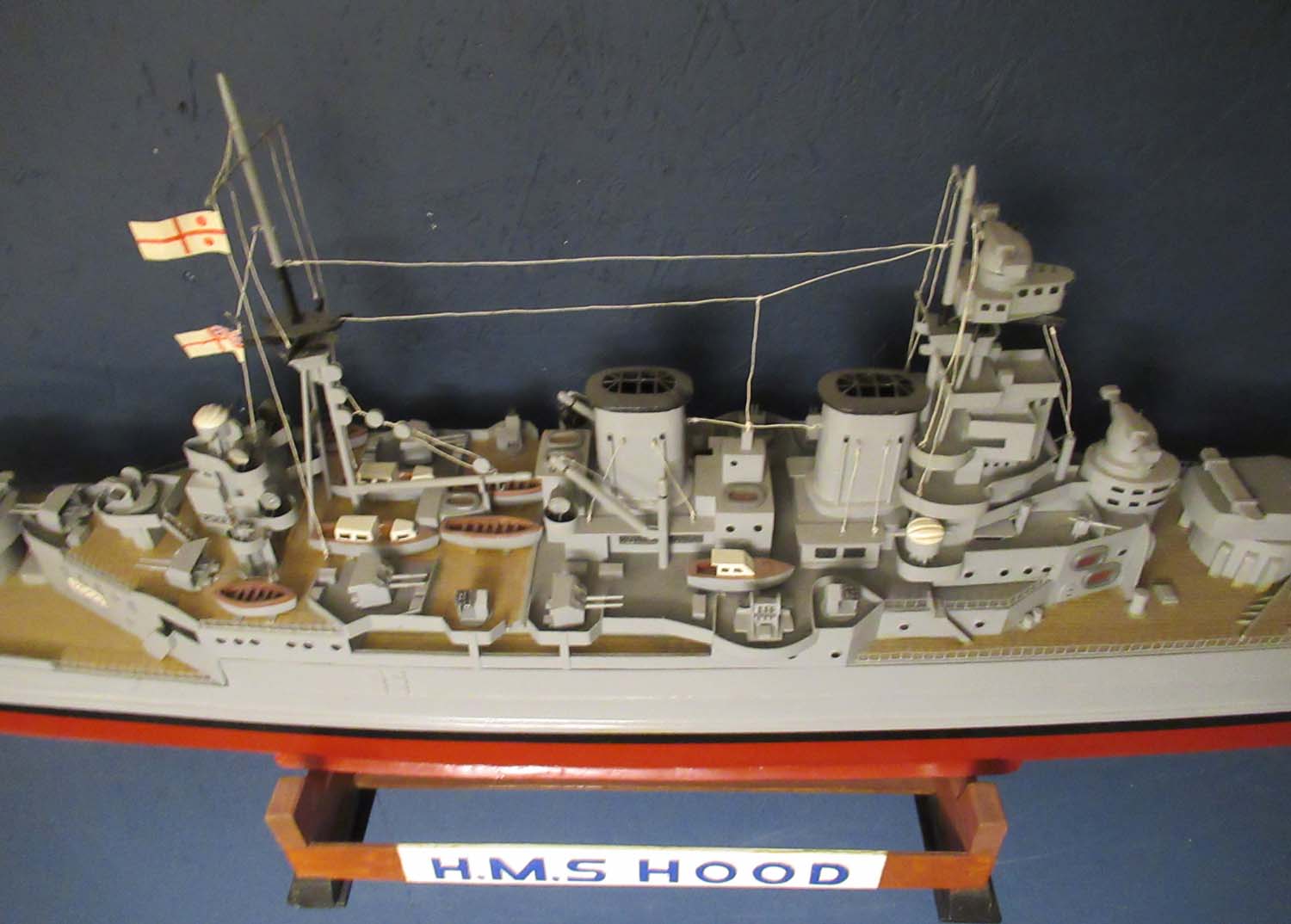
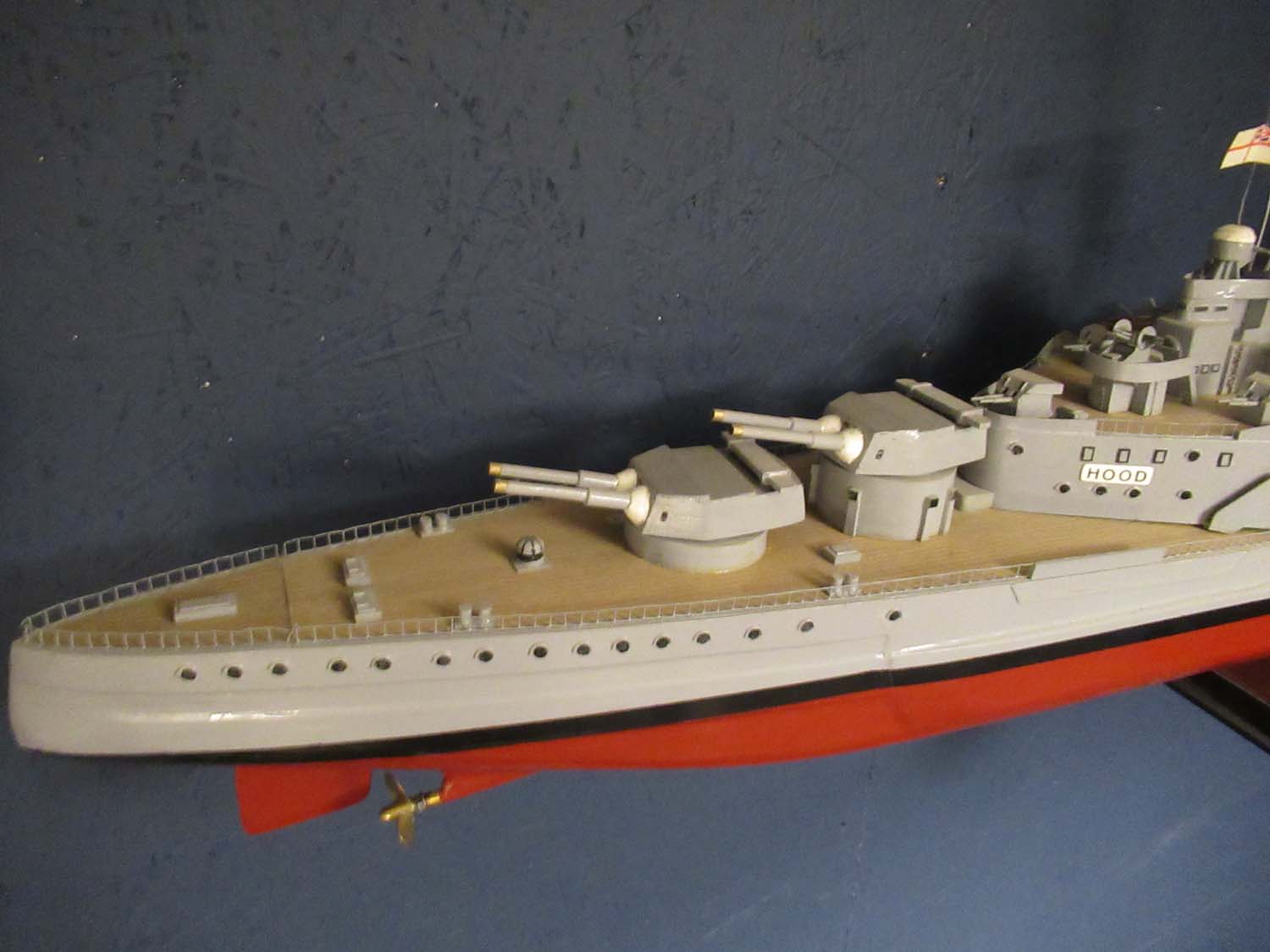
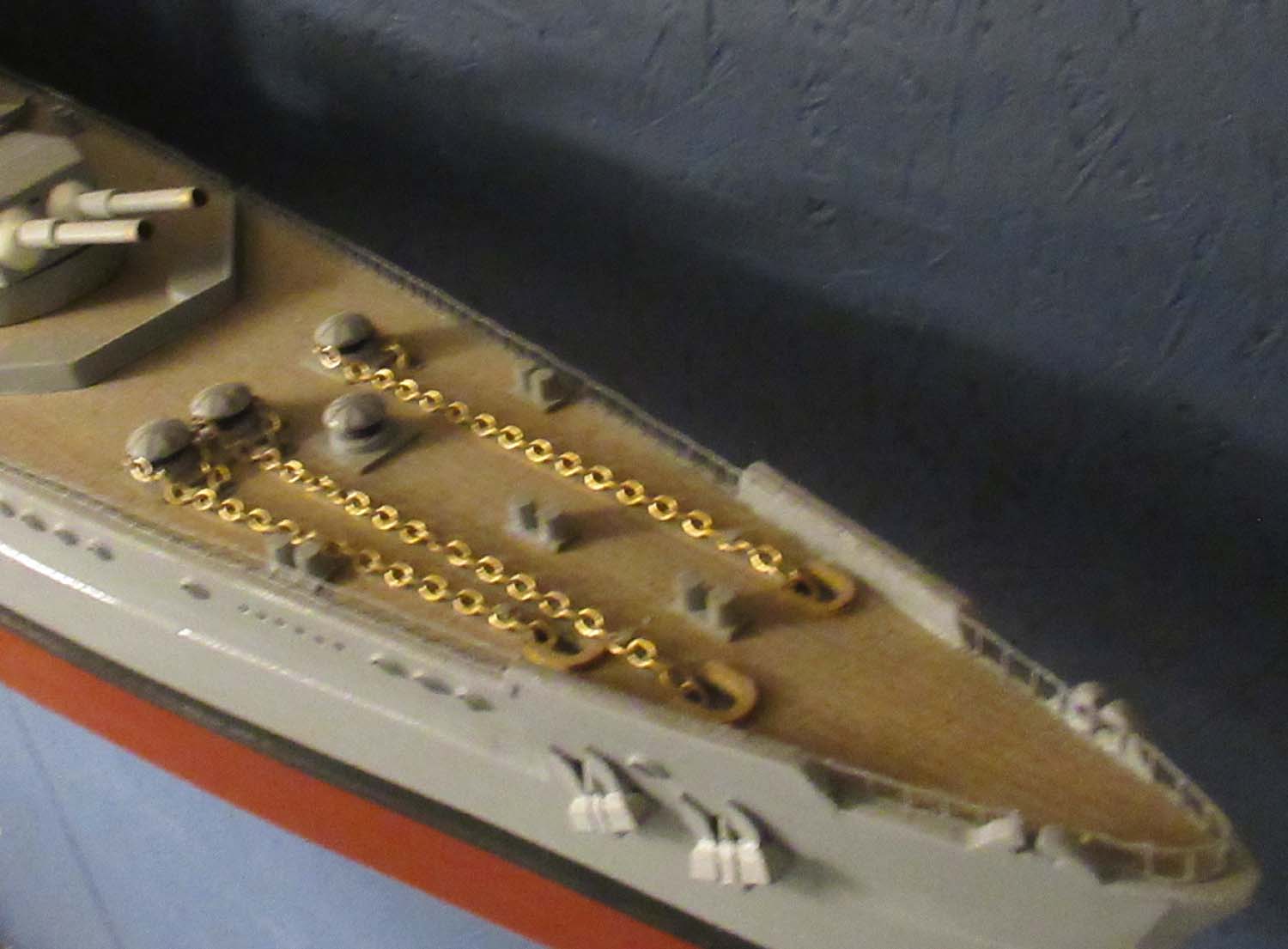
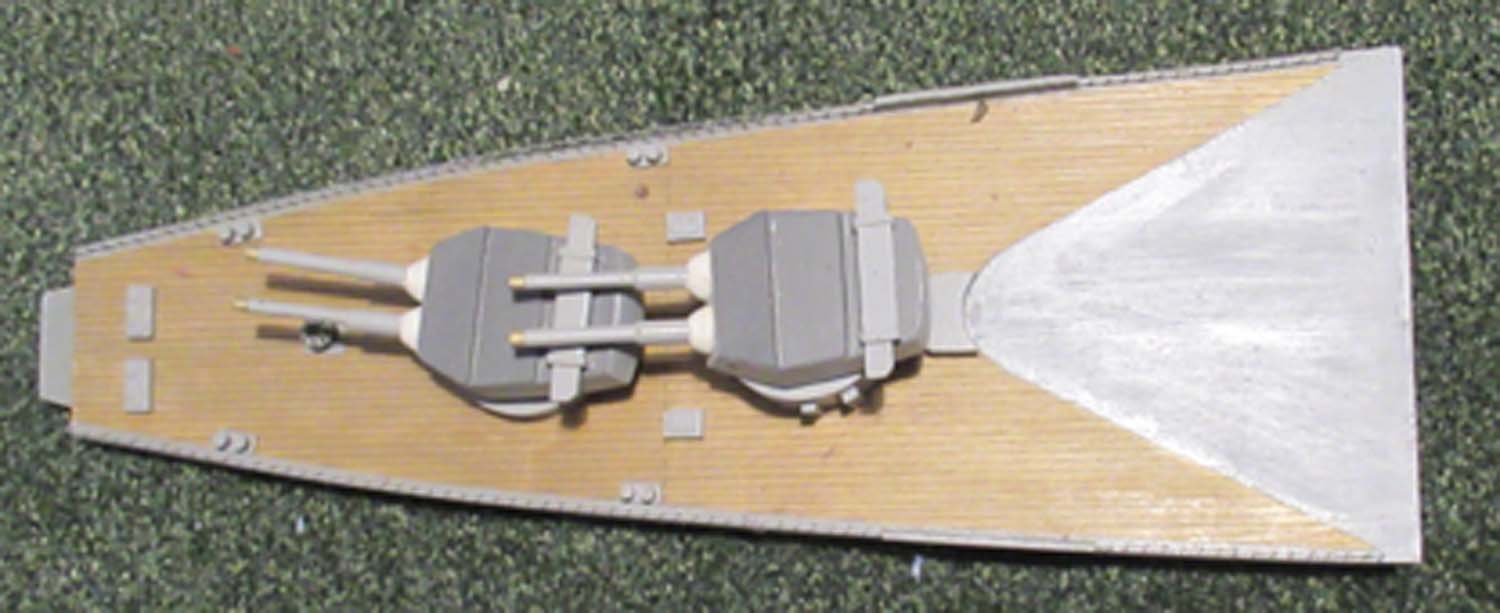

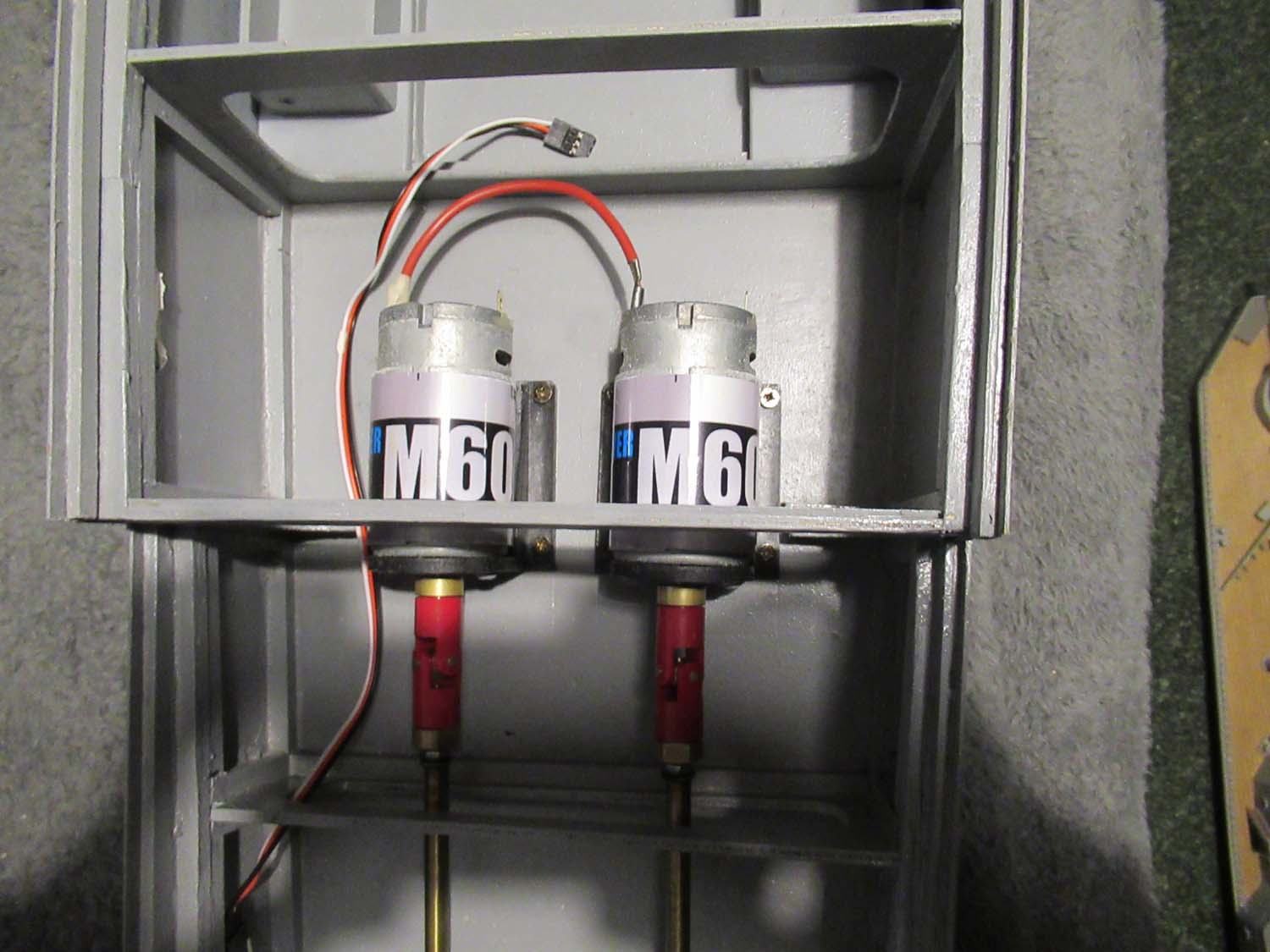

Shipping cost is not included
Contact me for shipping options
£ 599


|
|
|
HMS Kelly
(Pg1 Model Ship 2)
This superb model of HMS Kelly is powered by a powerful twin
cylinder live steam engine. Both throttle and reversing gear
are control by servos.
1.68m or
66 " long
She does come with a
boiler but it is not fitted or connected as I found the
engine two hungry for this little boiler and I think she
would perform much better with another boiler.
A gas torch and
fitting for a standard gas bottle are included along with a
battery powered feed pump for the boiler.
This would make a great
project for someone who likes to tinker, there is nothing
quite like live steam and with her lightweight scratch built
hull and powerful engine she will have a realistic turn of
speed as befits a K class Destroyer. With a feed pump fitted
and using a readily available source of gas bottle she could
potentially run for hours easily out lasting a battery
powered boat.
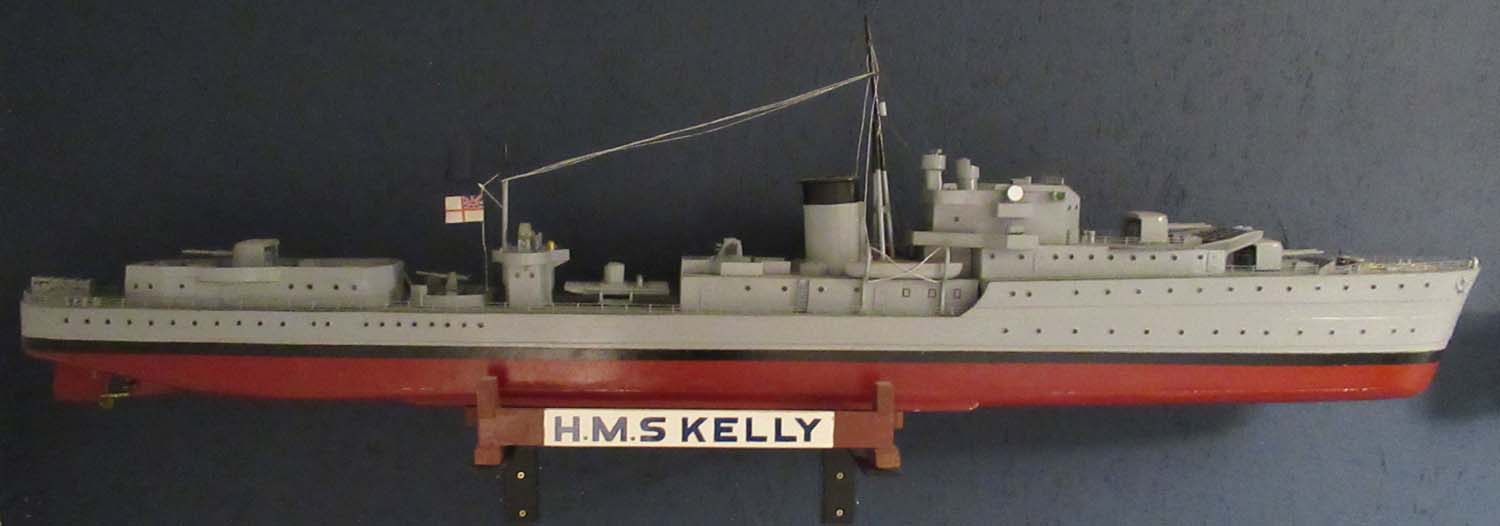
HMS Kelly was a K-class
destroyer of the British Royal Navy, and flotilla leader of
her class. She served through the early years of the Second
World War; in Home Waters, off Norway and in the
Mediterranean. Throughout her service, Kelly was commanded
by Lord Louis Mountbatten, as commander (Captain (D)) of the
5th Destroyer Flotilla. She was lost in action in 1941
during the Battle of Crete.
Kelly was built by Hawthorn Leslie and Company at Hebburn on
the River Tyne. She was laid down on 26 August 1937,
launched on 25 October 1938 and commissioned on 23 August
1939, just 11 days before commencement of hostilities. She
was named after Admiral of the Fleet Sir John Kelly.
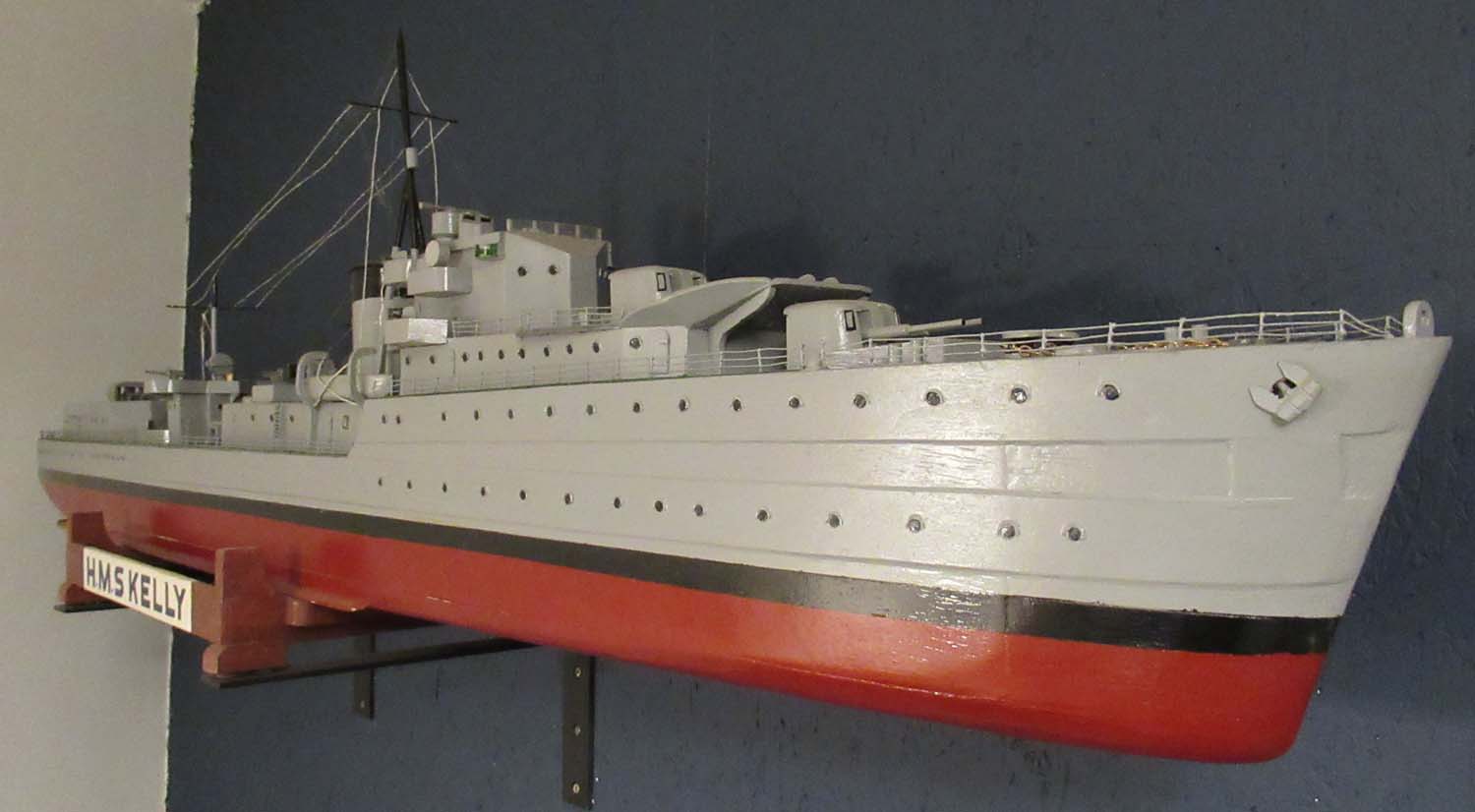


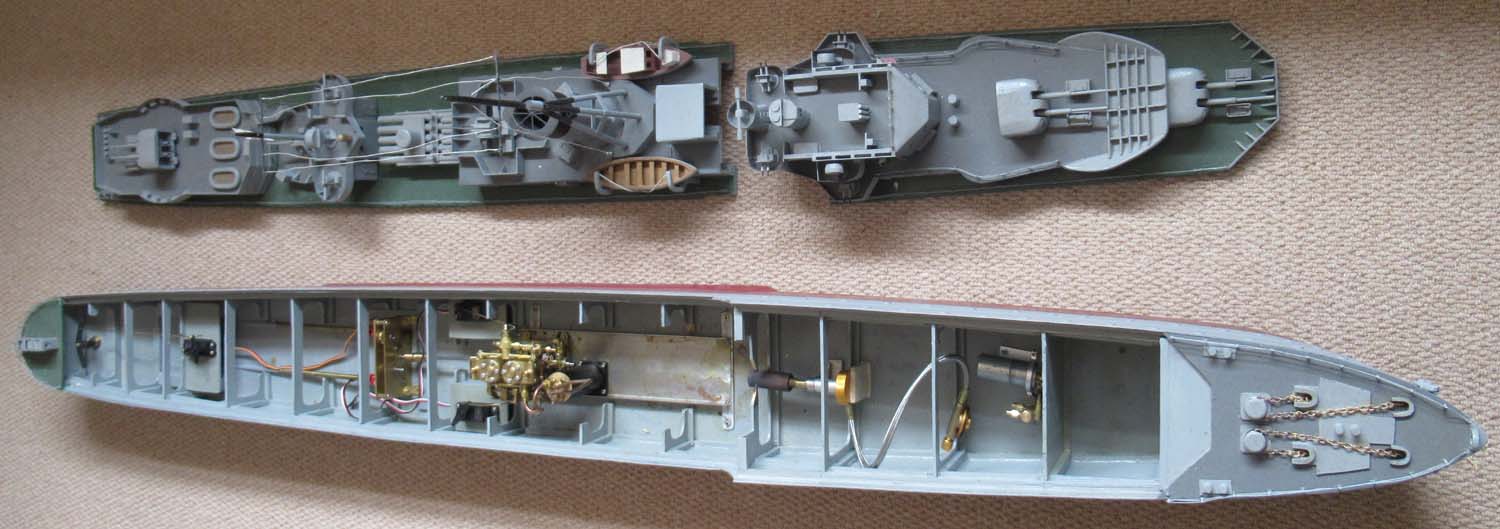
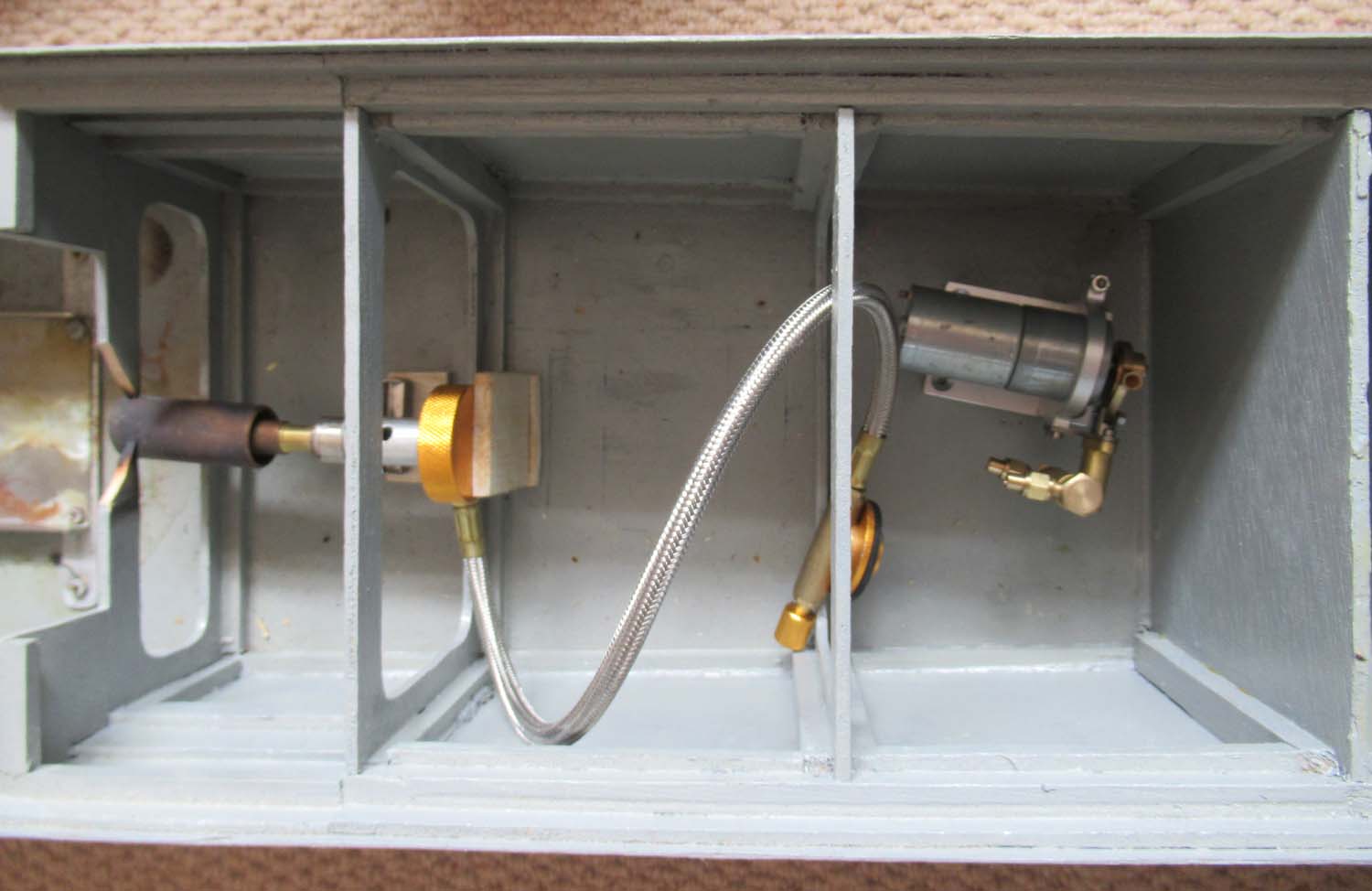
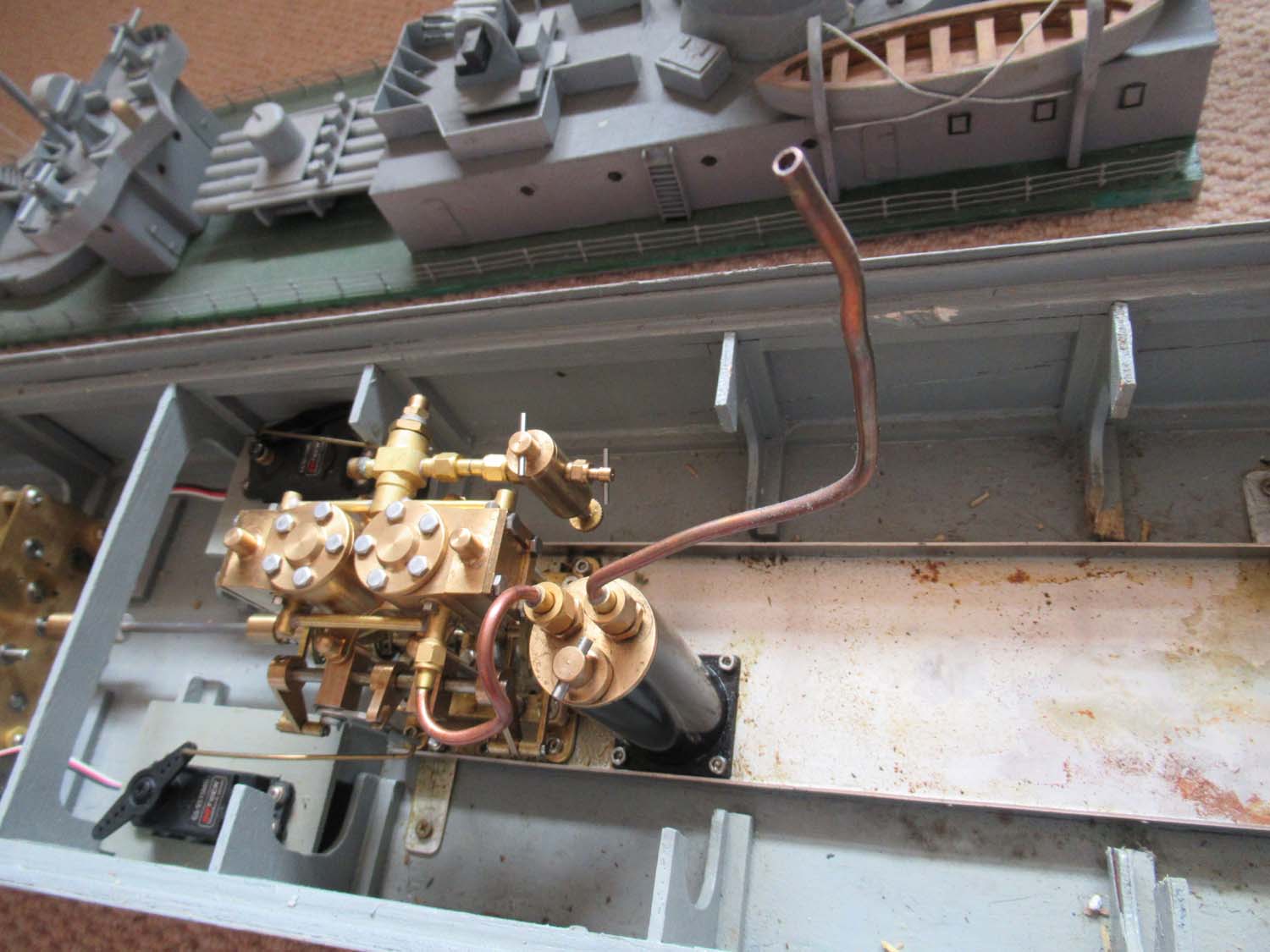
Engine is fitted with
throttle and reversing controls.
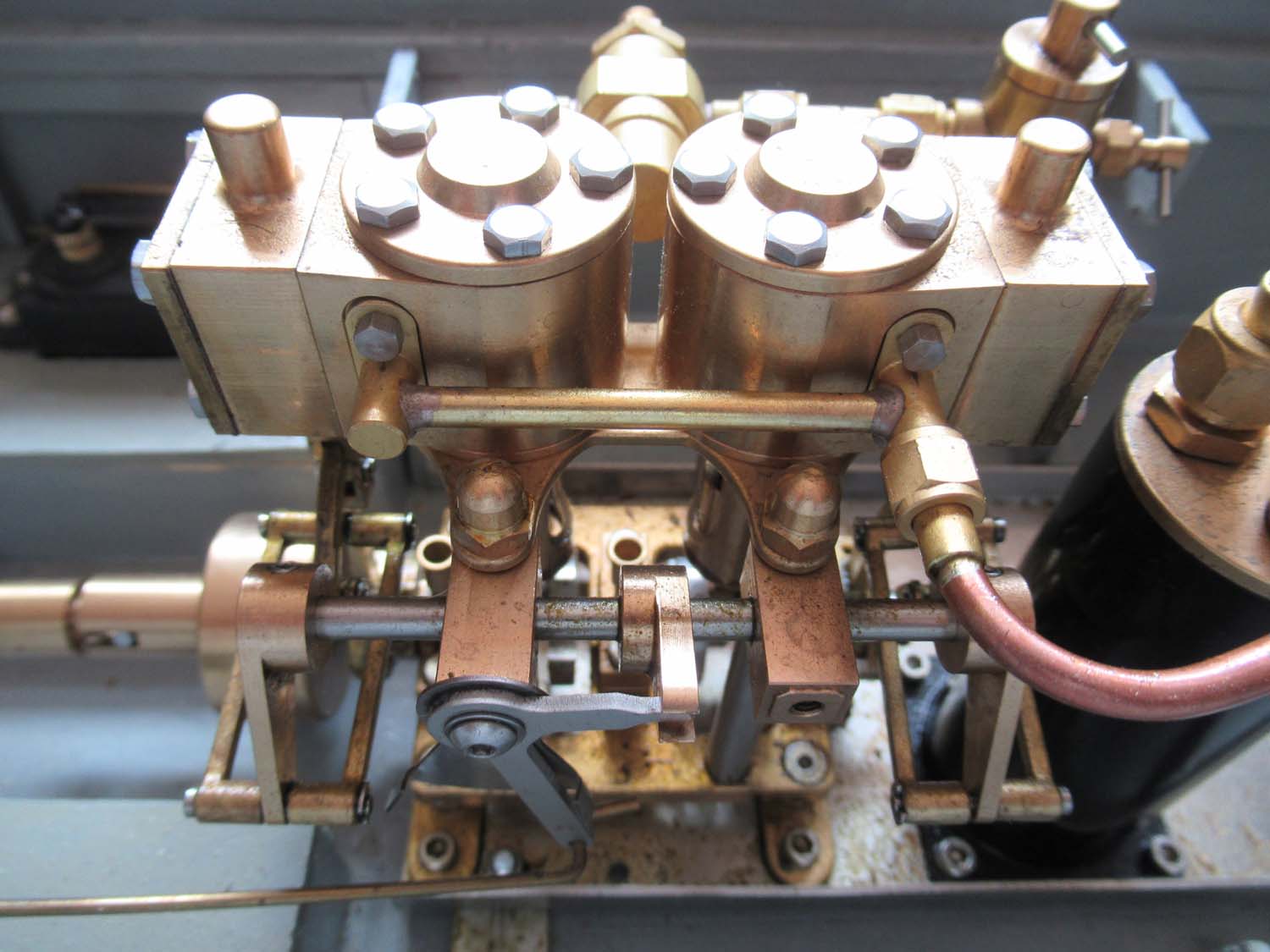
The stains are from oil not
rust this engine has been run.
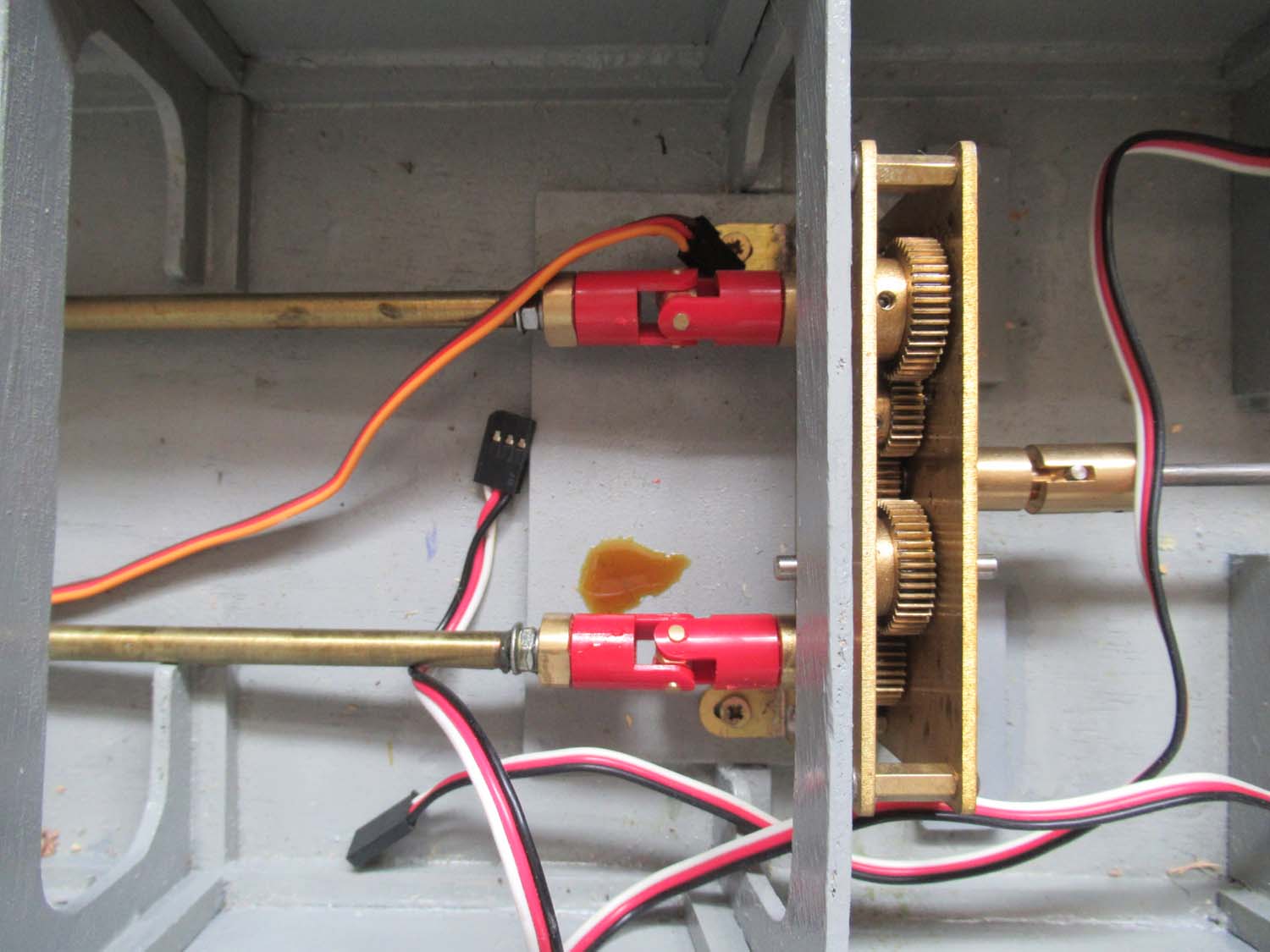
Beautiful little brass
gearbox driving twin screw props
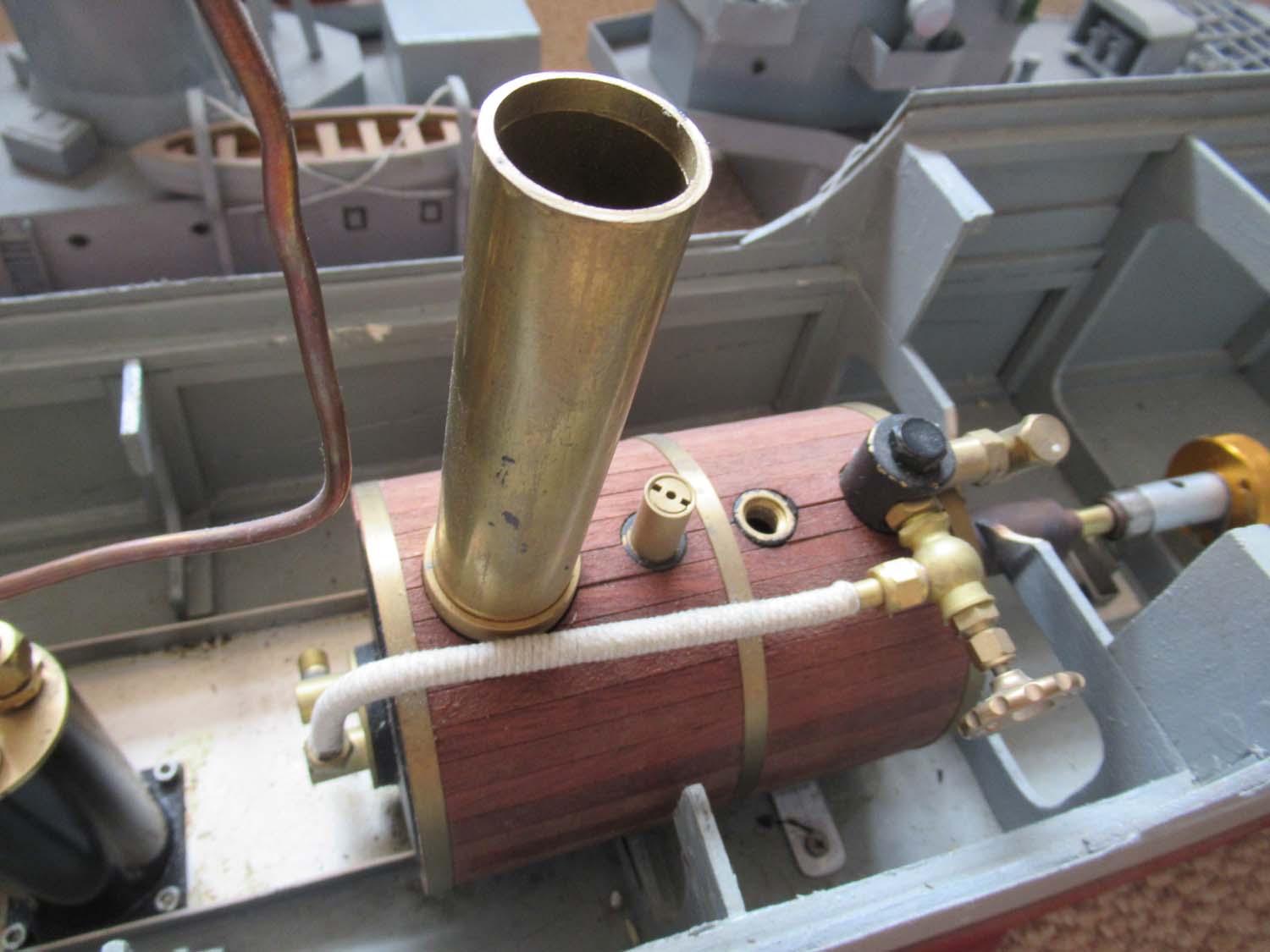
Boiler included but in my
opinion a better bigger boiler is required.
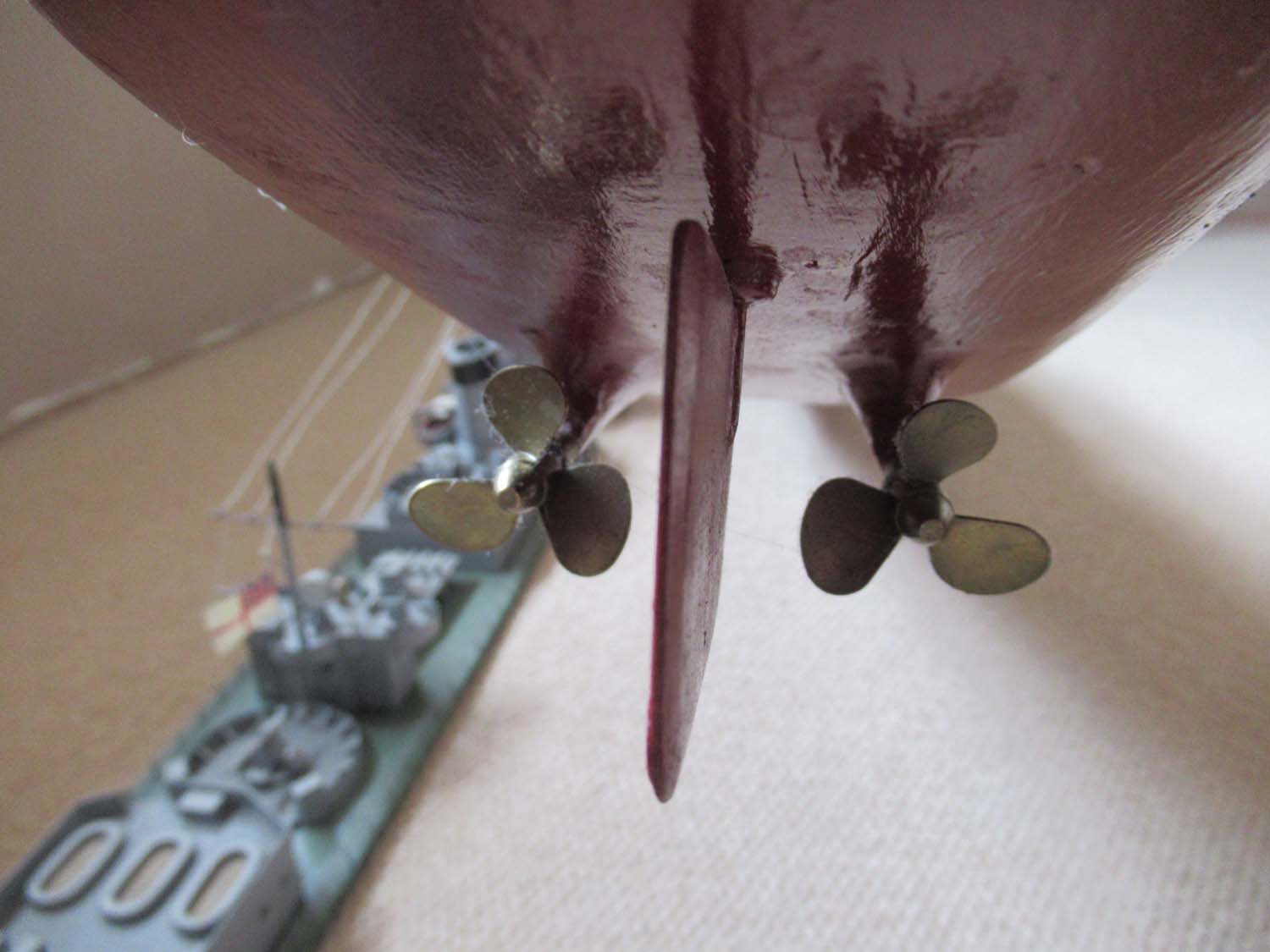
Shipping cost is not included
Contact me for shipping options
£ 899


|
|
|
|
|
|
|
|
|
|
|
|
|
|
|
|
|
|
|
|
|
